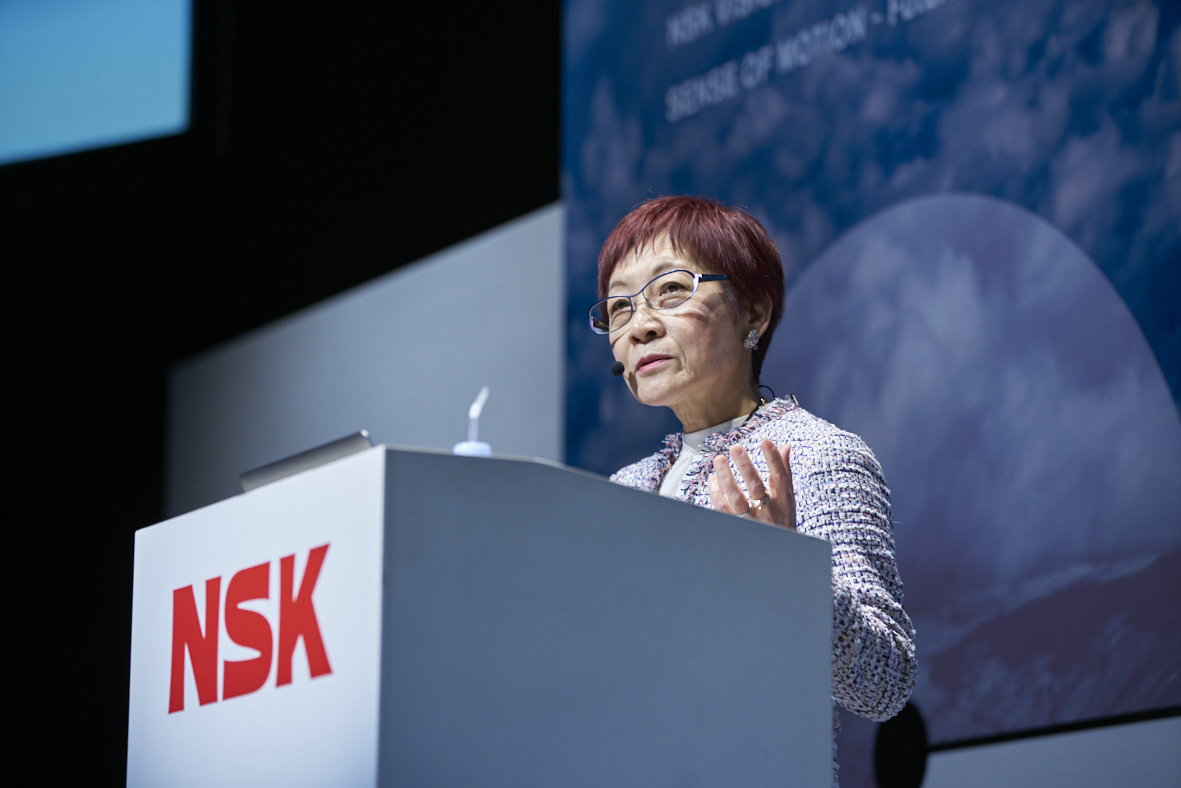SUMMARY 第一部
基調講演
長谷川眞理子

長谷川眞理子
自然人類学者として、生物であるヒトは自分たちを取り巻く世界の環境の動きをどのように感知しているのか。長谷川眞理子氏は動物の動きと人間の動きを比較し、人間がおもしろいのは、他者の動きや表情を瞬時に感知し、そこからさらにその人の情動や感情、欲求を感知して対応できることだと述べている。そして、それが高度な共感の感情の基盤になっており、そういう表情認知を通してコミュニケーションの信頼性は担保されているという。そして、「人を取り巻く物理的環境の動きの認知は、現代の技術では人の感覚がついていかないものもたくさんある。それをどうやって乗り越えていけるか。SNSなどの、表情が見えないコミュニケーションのなかでどのように信頼を築いていけるのか、人類学者として、子どもがそういう世界で育っていくことを少し危惧している」と述べ、いま人を取り巻いている環境が抱える課題について指摘した。

長谷川眞理子
総合研究大学院大学学長
理学博士。東京大学理学部生物科卒。東京大学大学院理学系研究科人類学専攻博士課程修了。タンザニア野生動物局、東京大学理学部人類学教室助手、ケンブリッジ大学フェロー、専修大学助教授・教授、イェール大学人類学部客員准教授、早稲田大学政治経済学部教授を経て、2006 年総合研究大学院大学教授。2007年先導科学研究科生命共生体進化学専攻長、2011年先導科学研究科長、2014年理事。2017年4月より学長(現職)。専門は行動生態学、自然人類学。野生のチンパンジー、イギリスのダマジカ、野生ヒツジ、スリランカのクジャクなどの研究を行ってきた。最近は人間の進化と適応の研究を行なっている。2008年より日本人間行動進化学会会長。2012年日本動物行動学会日高賞受賞。元国家公安委員。
理学博士。東京大学理学部生物科卒。東京大学大学院理学系研究科人類学専攻博士課程修了。タンザニア野生動物局、東京大学理学部人類学教室助手、ケンブリッジ大学フェロー、専修大学助教授・教授、イェール大学人類学部客員准教授、早稲田大学政治経済学部教授を経て、2006 年総合研究大学院大学教授。2007年先導科学研究科生命共生体進化学専攻長、2011年先導科学研究科長、2014年理事。2017年4月より学長(現職)。専門は行動生態学、自然人類学。野生のチンパンジー、イギリスのダマジカ、野生ヒツジ、スリランカのクジャクなどの研究を行ってきた。最近は人間の進化と適応の研究を行なっている。2008年より日本人間行動進化学会会長。2012年日本動物行動学会日高賞受賞。元国家公安委員。
Mariko Hasegawa
President, SOKENDAI (The Graduate University for Advanced Studies)
Mariko Hasegawa, Ph.D. Graduation from The University of Tokyo, School of Science, and obtained Ph.D. degree in Anthropology from Graduate School of Science, The University of Tokyo. Worked at the Tanzania Wildlife Service and the Laboratory of Anthropology, Department of Biological Science, Graduate School of Science, The University of Tokyo. She taught as an associate professor and professor at Senshu University, and as an associate professor at the Department of Anthropology at Yale University and as a professor at the School of Political Science and Economics, Waseda University, became a professor at SOKENDAI in 2006, in 2007 dean of Department of Evolutionary Studies of Biosystems at SOKENDAI, in 2011 then dean of School of Advanced Sciences, became Executive Director at SOKENDAI in 2014. From April in 2017, became President of SOKENDAI. Her specialty is Human behavioral ecology and Evolutionary psychology. She has studied behavior of wild chimpanzee, fallow deer, soay and peafowl. Recently she is conducting research on human evolution significance of human adolescence. She is the President of the Human Behavior and Evolution Society of Japan from 2008, and she received the Hidaka Award from the Japan Ethological Society in 2012.
Mariko Hasegawa, Ph.D. Graduation from The University of Tokyo, School of Science, and obtained Ph.D. degree in Anthropology from Graduate School of Science, The University of Tokyo. Worked at the Tanzania Wildlife Service and the Laboratory of Anthropology, Department of Biological Science, Graduate School of Science, The University of Tokyo. She taught as an associate professor and professor at Senshu University, and as an associate professor at the Department of Anthropology at Yale University and as a professor at the School of Political Science and Economics, Waseda University, became a professor at SOKENDAI in 2006, in 2007 dean of Department of Evolutionary Studies of Biosystems at SOKENDAI, in 2011 then dean of School of Advanced Sciences, became Executive Director at SOKENDAI in 2014. From April in 2017, became President of SOKENDAI. Her specialty is Human behavioral ecology and Evolutionary psychology. She has studied behavior of wild chimpanzee, fallow deer, soay and peafowl. Recently she is conducting research on human evolution significance of human adolescence. She is the President of the Human Behavior and Evolution Society of Japan from 2008, and she received the Hidaka Award from the Japan Ethological Society in 2012.



